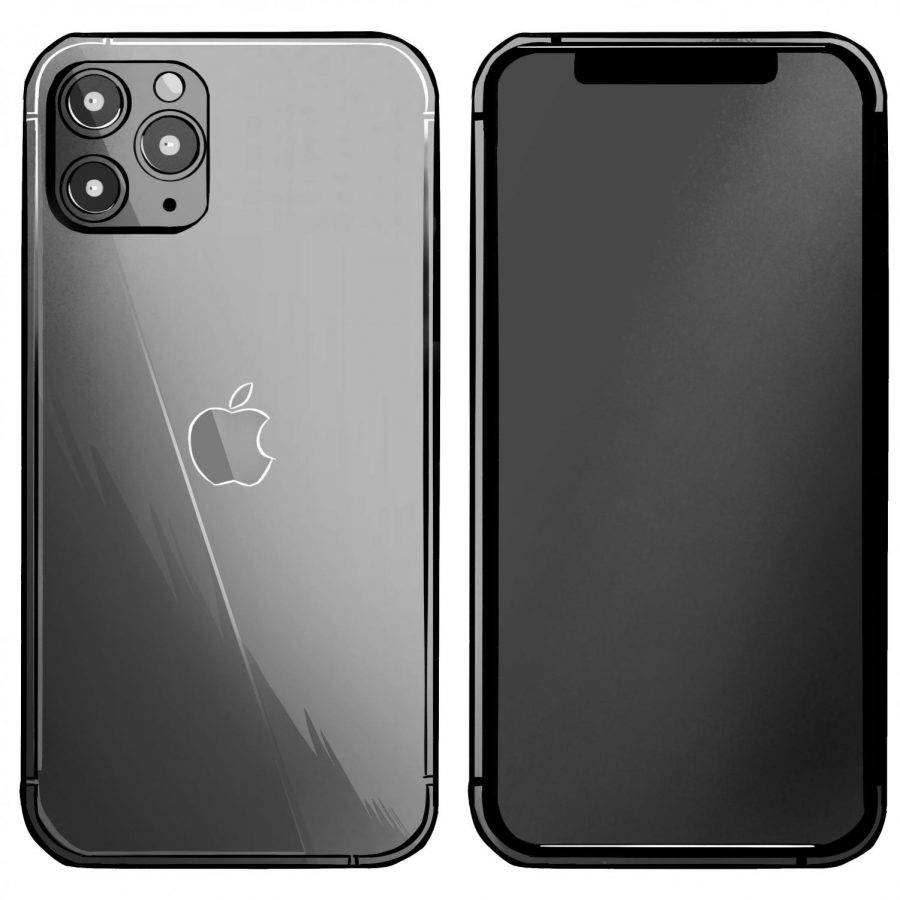iPhone 11 offers new features
The iPhone 11 Pro, Apple’s newest flagship device, is now in stores, and many complaints have already arisen: the three camera setup is deeply controversial. Yes, I’ve seen the numerous mitosis memes flooding social media after the keynote, and, indeed, there’s plenty to be discussed about Apple’s design choice. We’ll save that part of the review for last.
The iPhone 11 Pro and Pro Max serve as the successors to 2018’s iPhone XS and XS Max, respectively, with slightly improved screen brightness and processing speed under the
hood.
However, these upgrades aren’t very noticeable; outwardly—excluding the cameras—the iPhone 11 Pro is nearly indistinguishable from the iPhone XS. The two biggest improvements that Apple has chosen to focus on—battery life and camera quality—are what will determine whether the iPhone 11 Pro is worth its $1000+ price tag.
Apple itself claims the iPhone 11 Pro Max has an extra five hours of battery life compared to the iPhone XS Max due to a more efficient processor and display. I could not test this, though initial reports from reviewers certainly suggest that’s the case.
The more contentious issue remains: the cameras. As a disclaimer, the design is not as aesthetically unpleasing as some might think; in person, the cameras are complemented by a gorgeous matte finish that draws attention away from the camera setup.
The cameras are some of the best I’ve seen. The third added camera serves as an ultra wide camera, which allows for a much wider field of vision when shooting pictures. While it’s not perfect—the edges of the image are inevitably subject to a fisheye effect—simply having 0.5x zoom is invaluable to capturing a broader scene. On the other end of the zoom spectrum, a maximum of 10x zoom is possible; at that zoom, remarkably sharp image quality is still preserved.
Portrait mode is similarly excellent; for the most part, the camera has no problem finding the foreground and background. What I find especially appealing, though, is that it is possible to manually adjust the level of blurriness in the background while editing the image, a feature that has been improved from previous iPhone models. Apple also claims a night mode has been added to vastly increase the lighting quality of nighttime shots, but I wasn’t able to test the feature out myself.
To me, the most appealing improvement to the camera is its ability to shoot 4K video at 60 frames per second. Even from my quick test in the Apple store, the video came out incredibly crisp with great image stabilization.
That’s not to say the iPhone 11 Pro does not have flaws: some apps still crashed (the FaceID demonstration app refused to open and froze for a few seconds) and FaceID itself, while taking less than a second, is still slower than a traditional fingerprint reader.
The iPhone 11 Pro is an incredible phone with possibly the best smartphone camera system ever. However, it comes at a hefty price tag: around $1000. To me, that price tag isn’t wholly justified just on the basis of superior cameras and battery capacity. The iPhone 11 Pro is exactly what its name entails: an extravagant, luxurious phone made for the professionals who require the highest specifications and are willing to pay a premium for it.
Your donation will support the student journalists of Henry M. Gunn High School. Your contribution will allow us to purchase equipment and cover our annual website hosting costs.




